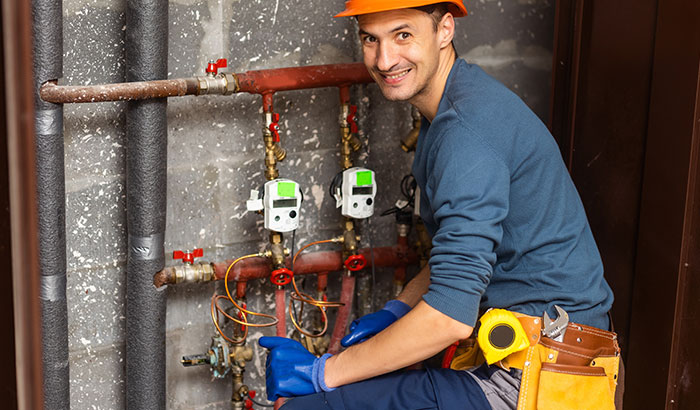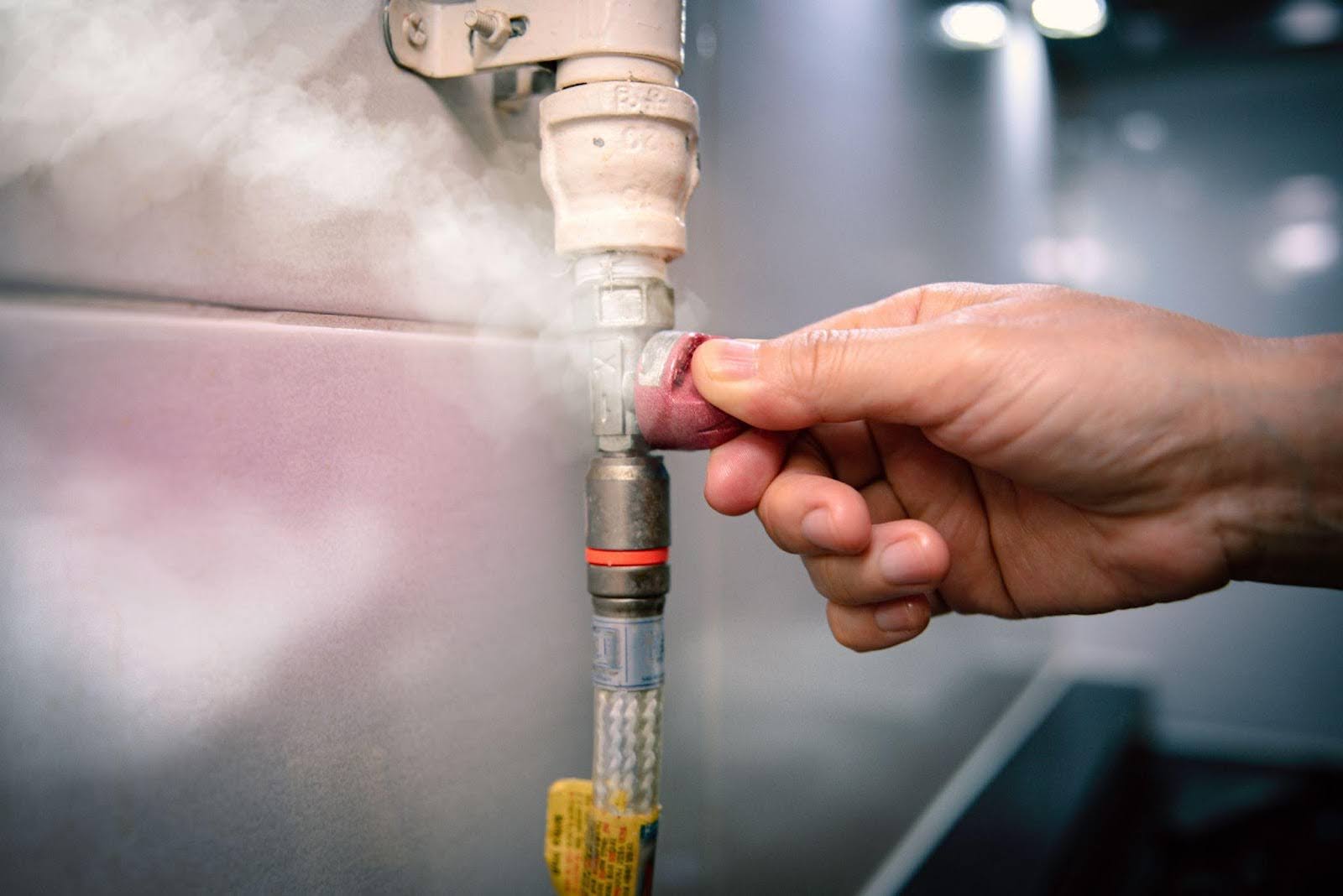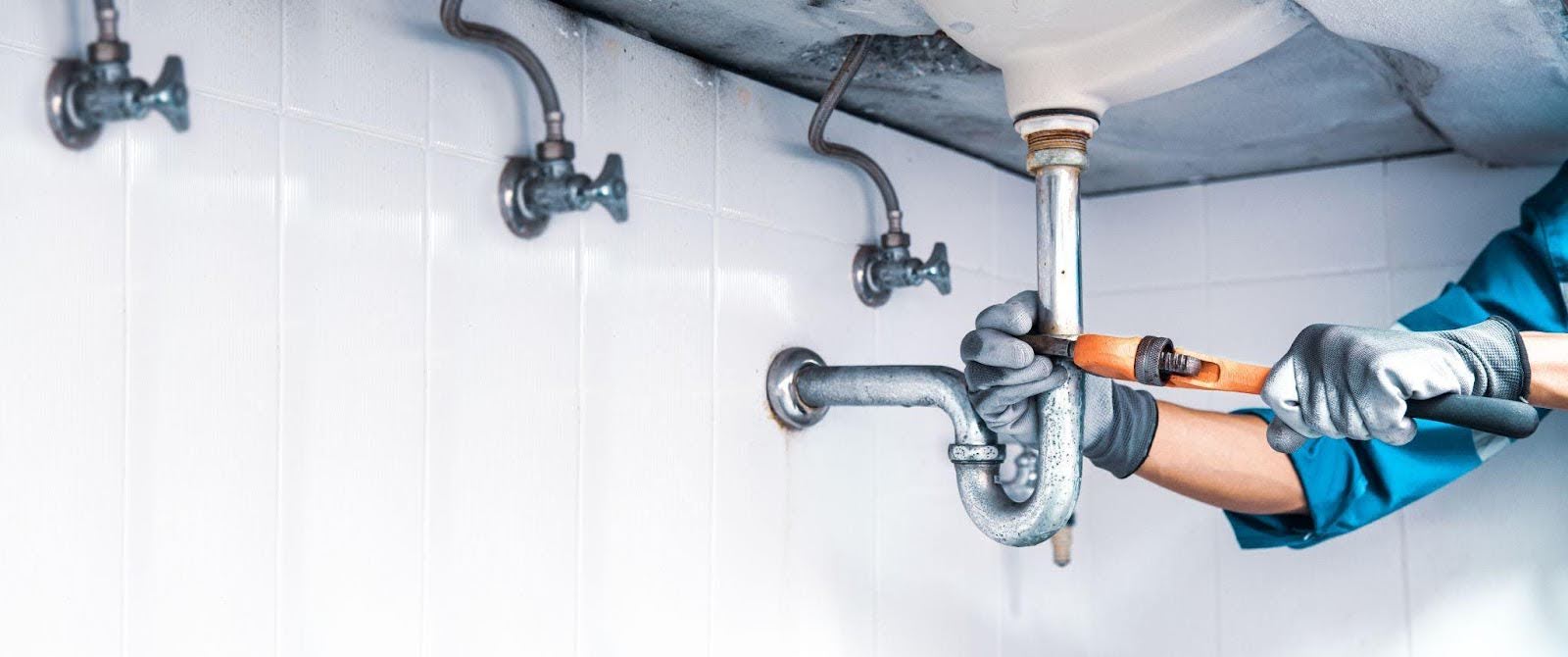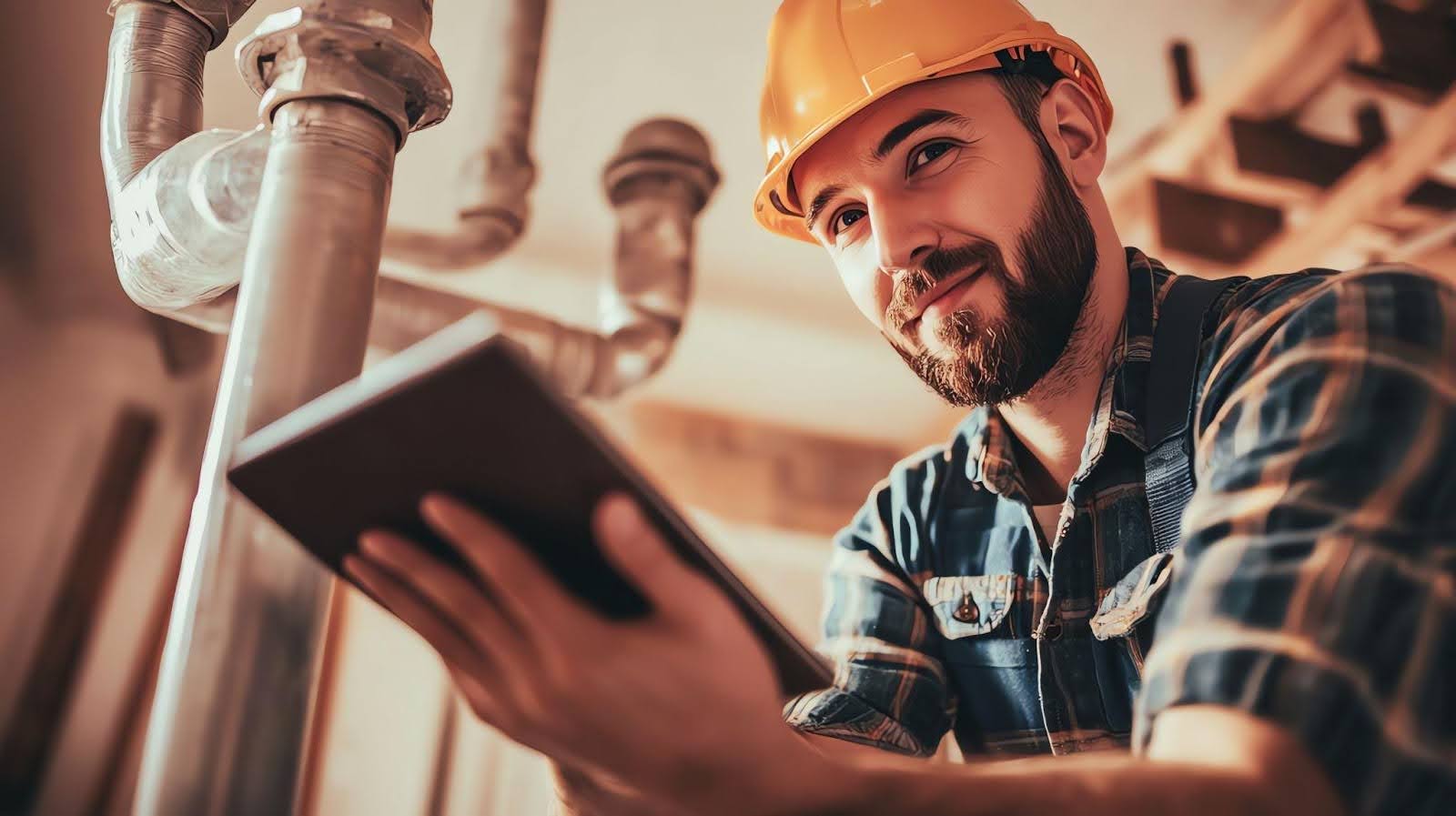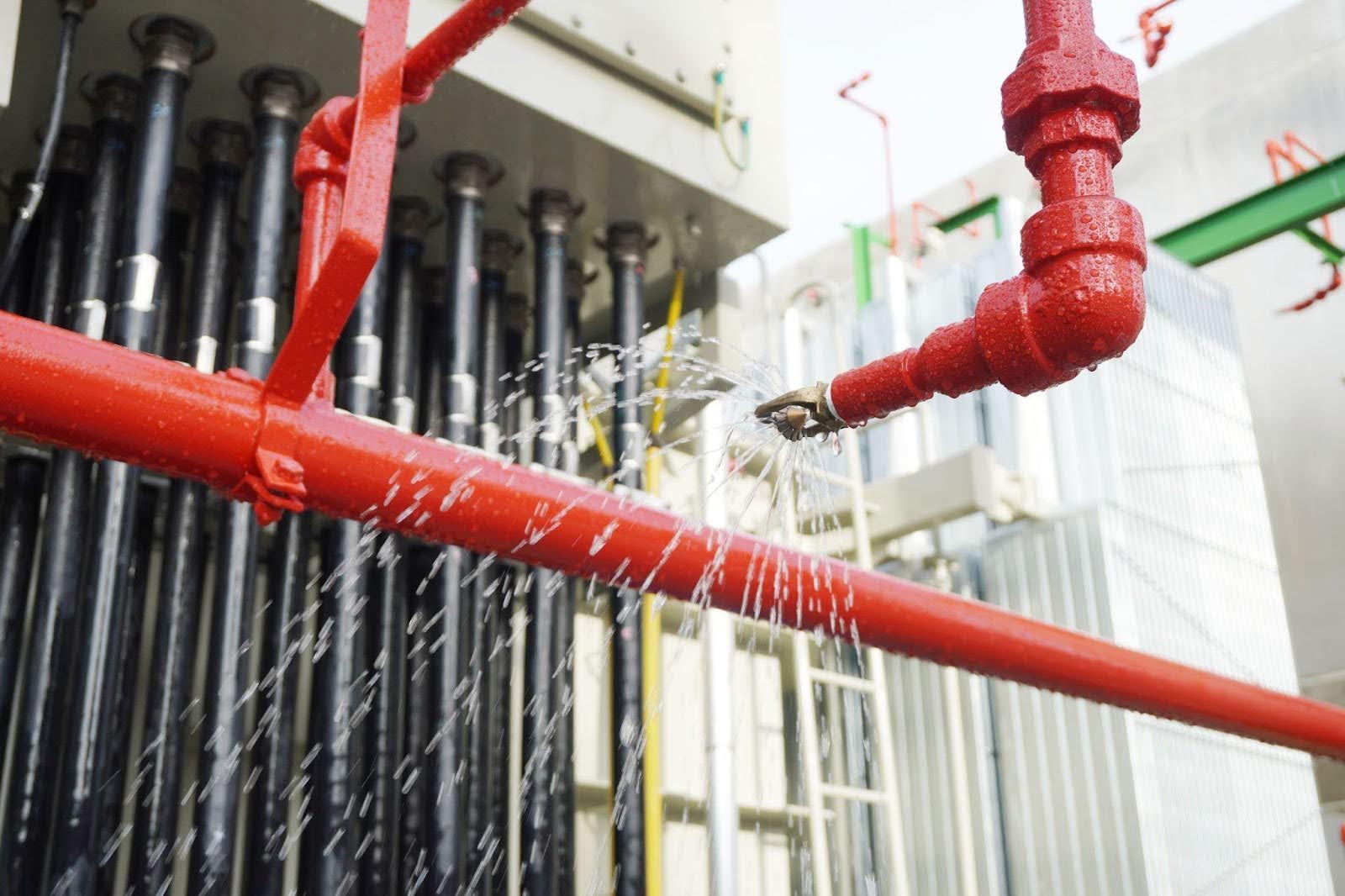Problems with plumbing can cause all kinds of headaches, especially when it comes to commercial plumbing.
Commercial buildings have complex plumbing systems that are prone to various issues. Clogged drains, leaks, low water pressure, backflow, frozen pipes, and sewer line blockages are some of the common problems that can occur.
This article will cover these common commercial plumbing issues and how to address them.
1 –Clogged Drains
Clogged drains are common in commercial buildings, particularly in kitchens and bathrooms. In a commercial kitchen, grease and food particles can quickly build up in the drains, causing blockages. This can lead to slow-moving or completely blocked drains, disrupting operations and creating unsanitary conditions.
Bathrooms also often experience clogged drains due to the buildup of hair, soap scum, and other debris. This can lead to slow-moving or blocked toilets and sinks, which can be unpleasant and unsanitary for customers and employees.
To prevent clogged drains, it’s important to dispose of grease and food particles properly and to clean and maintain the drains regularly. You can do this by using drain cleaners or by scheduling regular maintenance with a plumber. In addition, it’s important to educate employees on the proper disposal of grease and food particles and to enforce strict cleaning and maintenance protocols.
If clogged drains occur, addressing them as soon as possible is essential to minimize disruption and potential damage. A professional plumber can use specialized tools, such as a snake or hydro jet, to clear the blockage and restore proper flow.
2 – Leaks
Leaks in commercial buildings can occur in various locations, including pipes, valves, and fixtures. A variety of factors, including age, corrosion, improper installation, and damage can cause these leaks. Common signs of leaks in commercial buildings include water stains on walls or ceilings, mold growth, and increased water bills.
If not addressed promptly, leaks can cause significant water damage, mold growth, and structural damage. Leaks can also lead to decreased water pressure and can cause the malfunctioning of other equipment that uses water. It’s important to address leaks as soon as they are detected to prevent further damage and costly repairs.
3 – Low Water Pressure
Low water pressure in commercial buildings can have a number of causes, including clogged pipes, corroded pipes, or a malfunctioning pressure regulator. Clogged pipes can occur due to the buildup of minerals, sediment, or other debris, which can restrict water flow. Corroded pipes can also reduce water flow and can eventually lead to leaks.
A malfunctioning pressure regulator — a device that controls the water pressure in a building — can also cause low water pressure. In some cases, low water pressure can be caused by a problem with the water main or a problem with the municipal water supply.
Low water pressure can be a significant problem for commercial buildings, as it can affect the functionality of sinks, toilets, showers, and other fixtures. It can also affect water equipment performance, such as dishwashers, laundry machines, and fire suppression systems.
Low water pressure can also malfunction other equipment, such as boilers and cooling towers. It is important to address the issue of low water pressure as soon as it is detected to prevent further damage and costly repairs.
4 – Backflow
Backflow is the unwanted reversal of water or other substances from a location that is usually downstream of a building back into the potable water supply. This can occur due to a change in water pressure, such as a pressure drop in the main water supply or a malfunctioning backflow prevention device. Backflow can occur in a variety of locations in commercial buildings, including irrigation systems, fire suppression systems, and other equipment that uses water.
Backflow can be dangerous as it can introduce contaminants into the potable water supply, potentially leading to health hazards. Backflow can also damage equipment and cause costly repairs. It is crucial to have a properly installed and maintained backflow prevention device to prevent backflow and to comply with local plumbing codes and regulations.
It’s also crucial to schedule regular testing and maintenance of backflow prevention devices to ensure they function correctly. In some areas, it is mandatory to have a certified backflow prevention assembly tester to test the device annually. Failure to comply with local regulations can result in fines and penalties.
5 – Frozen Pipes
Frozen pipes are a common issue in commercial buildings located in colder climates. Pipes exposed to freezing temperatures, such as those found in unheated areas or on the exterior of a building, are at risk of freezing. When the water inside a pipe freezes, it expands and can cause the pipe to burst. A burst pipe can lead to significant water damage, mold growth, and costly repairs.
It’s worth noting that some buildings have pipes that are more susceptible to freezing than others, such as high-rise buildings or building with poor insulation. In such cases, it’s crucial to have a professional plumber inspect the building and suggest the appropriate preventive measures.
6 – Sewer Line Blockages
Sewer line blockages are a common issue in commercial buildings, as they can be caused by various factors, including grease, oil, and other debris building up in the pipes. These blockages can lead to slow drains, backups, and unpleasant odors. They can also cause damage to the sewer system and lead to costly repairs.
It’s important to address sewer line blockages as soon as they are detected to prevent further damage and costly repairs. In some cases, a blockage can be cleared by a plumber using specialized equipment, but in more severe cases, it may require excavation of the sewer line.
Contact the Professional Plumbers at Salisbury Plumbing
Commercial plumbing issues can impact your business significantly, so it’s important to address them sooner rather than later. If you’re running into plumbing issues and don’t know where to start fixing them, you can count on the experts at Salisbury Plumbing.
We have been serving Utah County residents and businesses with a skilled team of plumbers for over 15 years. Call us at 385-375-1207 or fill out our online form for a free estimate today.


